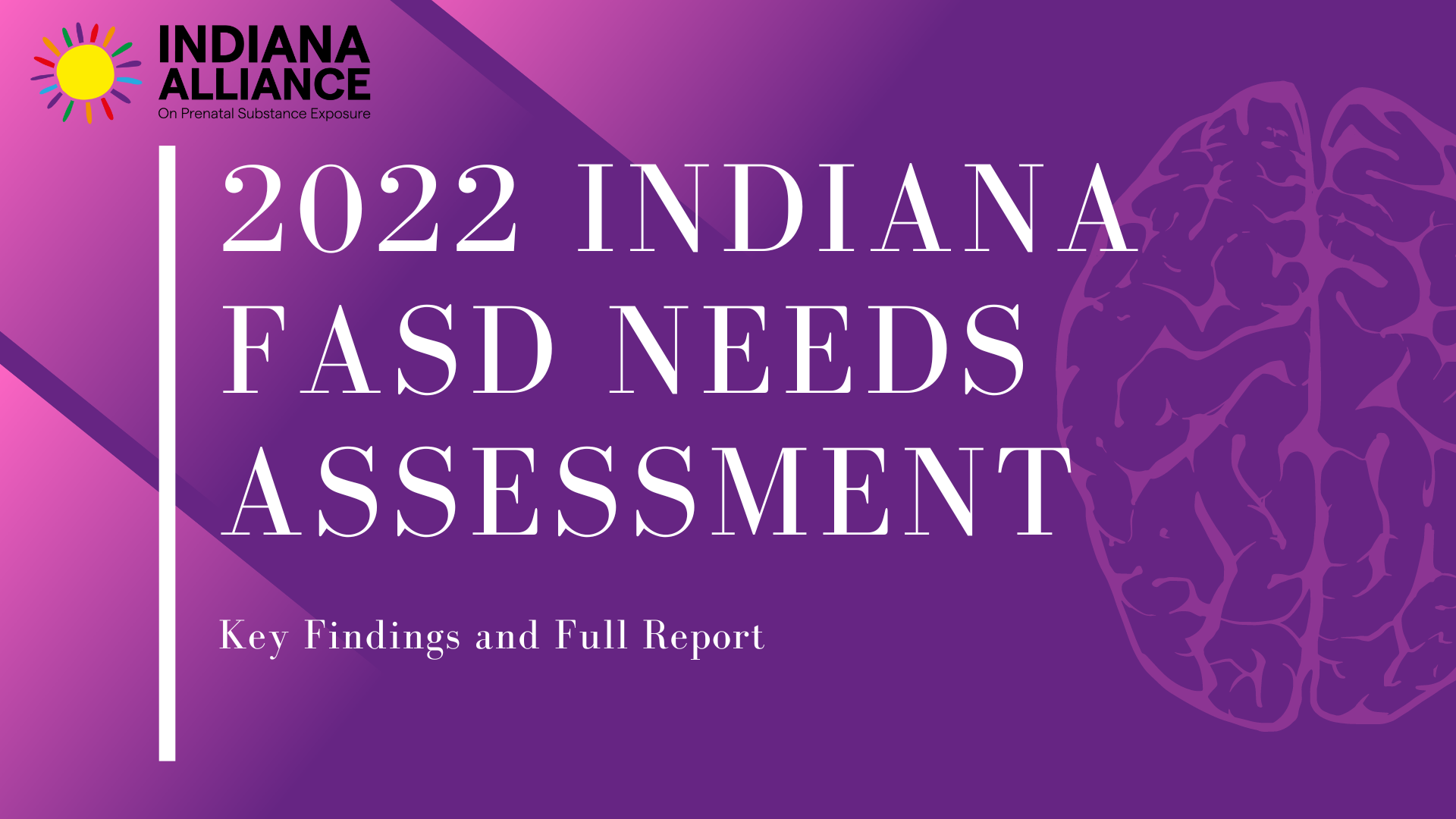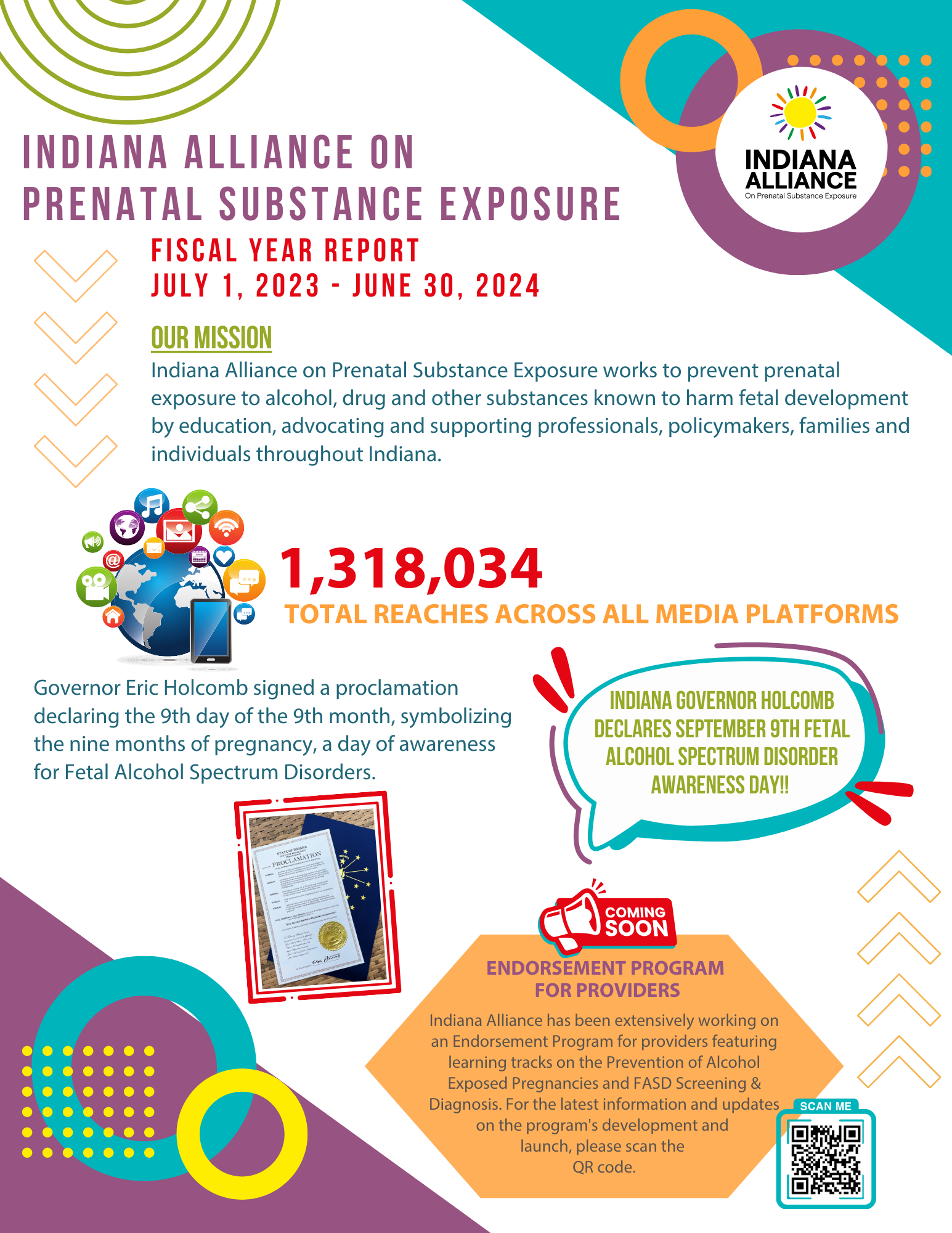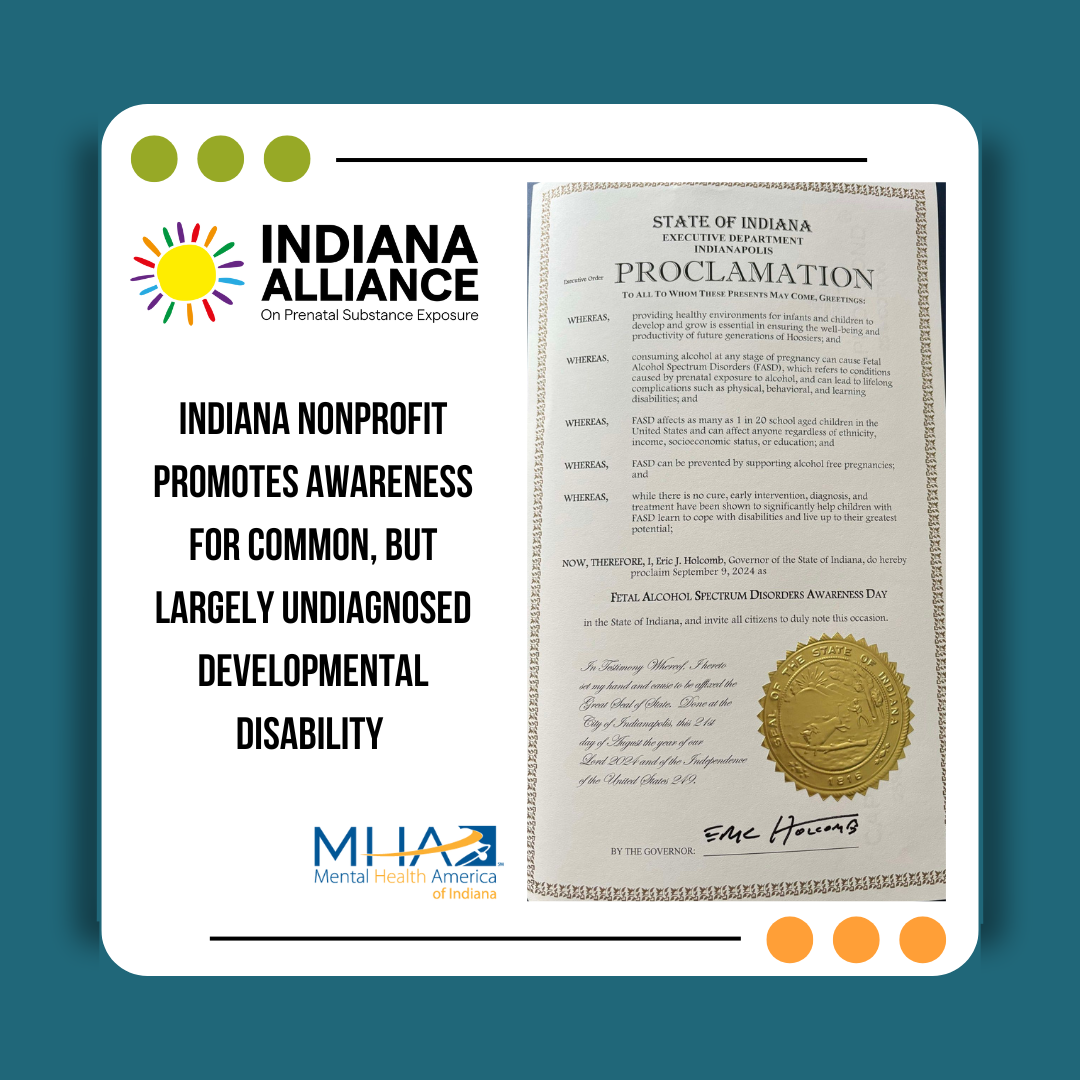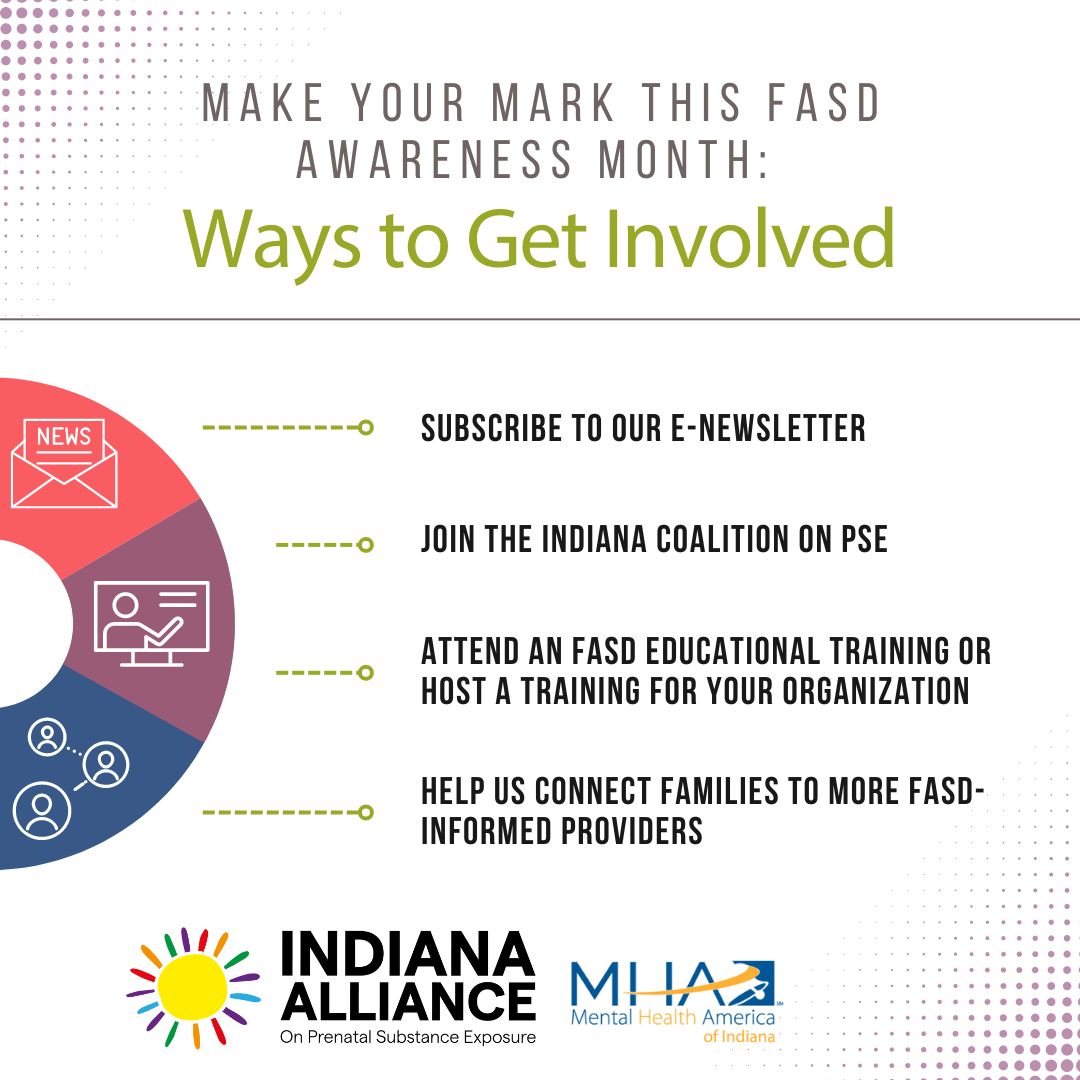Due to generous funding provided by the State of Indiana Division of Mental Health and Addiction (DMHA), we were able to conduct a needs assessment assessing Fetal Alcohol Spectrum Disorder in Indiana.
Key takeaways from the needs assessment:
- Survey data suggests improved awareness about healthy behaviors related to pregnancy. Caregivers demonstrated increased recognition that all types of alcohol can affect the developing fetus. However, some respondents continue to believe wine is not harmful. Furthermore, 24% of providers said FASD can occur if the pregnant person drinks “certain types” of alcohol, suggesting an ongoing need for education.
- Survey responses seem to indicate an increased consumption of alcohol during pregnancy both the three months before pregnancy and during an average week in the past month. It is noted that alcohol consumption increased during the COVID-19 pandemic, especially among females (Barbosa, 2021). Stay at home orders and eased regulations for access to alcohol impacted both increased purchases and consumption. Barbosa et. al., observed that increases in consumption were consistent across all demographic groups but particularly higher for women. Although relatively small samples were accessed for the 2006 and 2022 needs assessment surveys, there was an apparent increase in alcohol consumption in the latest data. It is not possible to directly link alcohol consumption to the effects of the pandemic, however this may suggest an even greater need for public awareness and education about the potential harmful effects of consuming alcohol while pregnant.
- Although there have been ongoing efforts to provide public awareness and education about Fetal Alcohol Spectrum Disorders, the data suggests there remains a continued lack of understanding of the criteria for describing and diagnosing FASD. The 2022 survey participants represented fewer medical practitioners (physician and nurse). Instead, more mental health, early intervention and home visiting providers participated which may suggest a particular need to provide information and education about FASD to professionals across all disciplines and fields.
- Results of the needs assessment suggest a general lack of awareness about the purpose, availability, and utility of screening tools.
- Results of the needs assessment suggest a lack of knowledge among non-medical providers about the Indiana Birth Defects and Problems Registry (IBDPR).
- The needs assessment results suggest an ongoing need and demand to provide current resources using preferred information access methods of target audiences.
- The results of the 2022 needs assessment echo the findings from 2006 regarding the need for a coordinated approach to the complex issues related to FASD.
To view the report in its entirety, click below!







